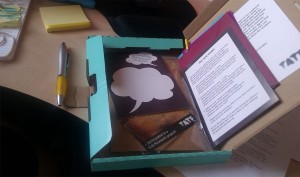Core team
About the research
The research strand “Capturing London’s Audiences” is designed to do just that: to better understand how audiences and cultural consumers behave, how their experience can be enhanced and developed, and how artistic and economic value can be added to the creative process. By working with artists, promoters, technologists, designers and academics, we aim to find answers to key questions of the moment; what is an audience; how do people respond to and interact with an aesthetic experience; what is the relationship between technology and live experience; what motivates people to engage with cultural products, and what value do they ascribe to their engagement? Key projectsExperiencing an Art Gallery
The project follows a ludic engagement methodology for exploring London’s museums audience experience In collaboration with a consortium of London’s museums, the project will focus on analysing and understanding the different experiences of London’s museum audiences, and identifying factors that affect their participation in the museums’ activities and eventually their engagement. The research questions are:
Digital platforms for collaboration in the Performing Arts This project aims to bring together artists, art organisations and audiences of London’s performing arts sector in order to design, collaboratively, models for engaging performing arts audiences through digital interactive media. The process will aim to create a commons where collaboration glitches can be addressed, where values, behaviours, and structures that underpin online or offline networked relations can be discussed; and where observing the interconnections that are formed, and following the lines of entanglement and disentanglement from the network will create useful knowledge that can eventually be applied in practice. Making the invisible visible: enabling audiences to ‘see’ archive collections The Geffrye Museum, a Grade 1 listed almshouse in Hoxton in East London that looks at the history of the home, will work with Dr Alastair Owens from Queen Mary, University of London, to find a way to research and develop visualisation models for presenting their unique archive of highly documented, digitized photographs of ordinary people’s homes dating from the late nineteenth century to the present. Taking advantage of a range of digital platforms the project will allow the user to select, interrogate, organise and interpret data beyond a pedestrian item-by-item approach, to explore and generate connections instead of seeing an object, space or concept in isolation. A Sense of Place Collaboration with arts organisation Magic Me developing resources and training for cultural collections organisations wanting to develop intergenerational arts practices in and with their collections. This project engages directly with at least 10 museums, archives and libraries across London through both academic journals (Journal for Intergernerational development) and newsletters (Mailout participatory acts and ARC – the magazine for Archives, Record Management and Conservation). Audiences, Live! Understanding and augmenting audience dynamics at live events What makes live performance compelling? How does it differ from relays or recordings? The Cognitive Science group at Queen Mary University of London is conducting research on how digital technologies are transforming the experience and analysis of live events and is aimed at those creating or producing live events for audiences or consumers, and interested academics. Previous ResearchOpera Audiences This project is an investigation of the audience experience of opera. Our research questions are led by the concerns of practitioners. Accordingly, we are interested in the various platforms through which audiences can experience opera; for example, cinema, theatre (large and small), internet, outdoor performances, and so on: how do these platforms influence each other; how do they differ from each other; what is the audience experience like in each case? In particular, what is the nature of the ‘live’ performance and how does it intersect with the many new technologies and platforms available? The findings have been published in the paper Opera Audiences and Cultural Value: A Study of Audience Experience Strand’s Research outputsGoing to a classical concert: the relationship between audience perceptions of artistic identity and motivation for future attendance Author: John Sloboda and Karen Wise, Guildhall School of Music & Drama – john.sloboda@gsmd.ac.uk Research Strand: Capturing London’s Audiences Abstract: This paper reports the outcomes of an investigation into the nature and motivations of the audience at a London concert of Britten Sinfonia, a touring chamber orchestra with a London residency. In particular it looks at the salience of the orchestra’s artistic ethos to audience members, and the role that awareness of this ethos plays in decisions to attend future concerts by the orchestra. The study is one part of an ongoing collaboration between Britten Sinfonia and researchers at the Guildhall School of Music & Drama, exploring how research can inform audience development strategies. Value and Audience Relationships: Tate’s Ticketed Exhibitions 2014–15 – REPORT, Tate Papers no.25 Author: Mariza Dima In this report Mariza Dima sets out the findings of a research project examining the experiential and educational value of Tate’s ticketed exhibitions to its audiences. Exhibition planning, the contributions of small and medium-sized enterprises and the museum’s data-gathering practices are explored, taking the 2014 exhibitions Late Turner and Malevich as case studies. Using digital content to build audiences for live opera Author: Dr. Sinéad O’Neill, Guildhall School of Music and Drama Research Strand: BOOST Award The purpose of this paper is to report on audience response to selected digital content produced by English Touring Opera (ETO) in support of the company’s Autumn 2015 tour. This study was conducted collaboratively between ETO and the Guildhall School of Music and Drama. The research team used focus groups to explore audience reactions to five items of supporting material produced by ETO. Through a qualitative analysis of the transcribed sessions, this report investigates how the items function, both individually and in general. Hackathons: Why Co-location? Author: Gerard Briscoe (Creativeworks London / Queen Mary University of London) Research Strand: London’s Digital Economy In this position paper we outline and discuss co-location as a significant catalyst to knowledge exchange between participants for innovation at hackathon events. We draw on surveys and empirical evidence from participation in such events to conclude that the main incentives for participants are peer-to-peer learning and meaningful networking. We then consider why co-location provides an appropriate framework for these processes to occur, and emphasize the need for future research in this area. English Touring Opera – ‘Opera in Cinemas’ Report Author: Karen Wise, Guildhall School of Music & Drama Research Strand: Capturing London’s Audiences Abstract: The project aimed to understand the appeal and audience experience of live cinema broadcasts of opera, in order to see whether lessons may be learned for live opera companies. Opera Audiences and Cultural Value: A Study of Audience Experience Author: Dr. Sinéad O’Neill, Creativeworks London Research Strand: Capturing London’s Audiences This project aims to better describe the cultural value of opera through a study of its most devoted audience members. Through qualitative surveys and in-depth, open-ended interviews with highly-engaged opera-goers, we identify and explore eight categories of interest that are important to this group’s experience of opera. Overview of Business-Facing Arts Audience Research Author: Dr. Sinéad O’Neill, Creativeworks London This report is a review of public-domain research conducted specifically in order to inform arts organisations about their audiences. The research covered is driven by the demands of the arts industry to understand its audiences and to develop and broaden audiences for the arts. The report includes links to key publications and research organisations, and an overview of the key offerings. Events and activities16 November 2015, Keynote address to an RMA Study Day on “Listening to the listener: contemporary perceptions of classical music” Audiences for live classical music: why do they attend (or not), and how can composers, performers, and promoters better engage them?, University of Sheffield John Sloboda and Karen Wise included material on CWL-supported Britten Sinfonia collaborative project assisting them to better understand their London audience. 18-22 August 2015, Symposium on “Understanding Audiences” at the 9th Trienniel conference of the European Society of Cognitive Sciences of Music (ESCOM), Royal Northern College of Music. John Sloboda and Karen Wise co-convened and presented on data from two London-based projects, including work with Britten Sinfonia, forming the basis of CWL-supported project running from 2015-2016. May 2015, Research Laboratory on “Engaging London’s Museum Audiences” Lead academics: Alison Blunt, Alastair Owens, Maurice Davies, Mariza Dima. 6th February 2015, Symposium “More than accessible: theatre and performance in the age of the spectator” Lead academics: P. A. Skantze and John Sloboda. November 2014, “What is the future of entrepreneurship in the performance and creative arts”? Roundtable at the Guildhall School, lead by academic Helena Gaunt, with broad participation from both academia and the creative industries. Abstract: This event explored the future, challenges and opportunities of entrepreneurship in the creative arts. Speakers from across the performing and creative arts explored why we need entrepreneurship and what the future holds for finding, developing and nurturing the next generation of entrepreneurs. The evening brought together entrepreneurs from across the business and creative industries, funders, organisations running programmes in entrepreneurship and Higher Education institutions addressing the employability agenda. Audiences, Live! Understanding and augmenting audience dynamics at live events. 17th October 2013, Research Laboratory at the British Academy. The event had two parts: an afternoon symposium, where strand members and invited guests discussed work-in-progress from two strand members, followed by a public lecture by Professor Ian Christie. Professor Christie’s talk on Old Dogs, New Tricks: the many modern forms of film and their audiences is available here. |
Creativeworks London is one of four Knowledge Exchange Hubs for the Creative Economy funded by the Arts and Humanities Research Council (AHRC) to develop strategic partnerships with creative businesses and cultural organisations, to strengthen and diversify their collaborative research activities and increase the number of arts and humanities researchers actively engaged in research-based knowledge exchange.
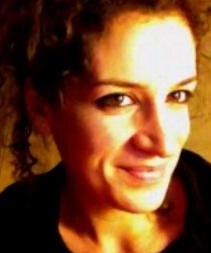
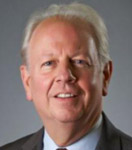 Professor Barry Ife
Professor Barry Ife 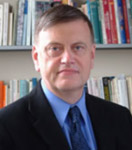 Professor John Sloboda
Professor John Sloboda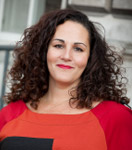 Suzie Leighton
Suzie Leighton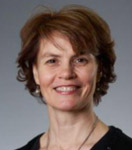 Dr Helena Gaunt
Dr Helena Gaunt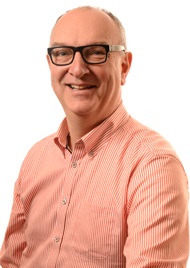
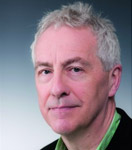 Nigel Llewellyn
Nigel Llewellyn
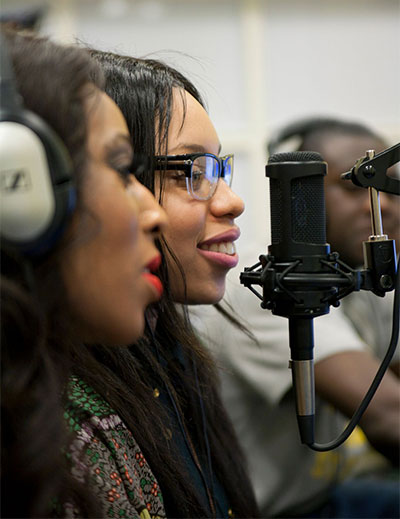 The majority of economic value in the creative economy is added by the end user – the audience. Yet this is the link in the value chain that we understand least well. Whether through attendance at exhibitions and performances, or the purchase of objects or downloads, audiences ascribe many kinds of value to their experience, including monetary value.
The majority of economic value in the creative economy is added by the end user – the audience. Yet this is the link in the value chain that we understand least well. Whether through attendance at exhibitions and performances, or the purchase of objects or downloads, audiences ascribe many kinds of value to their experience, including monetary value.